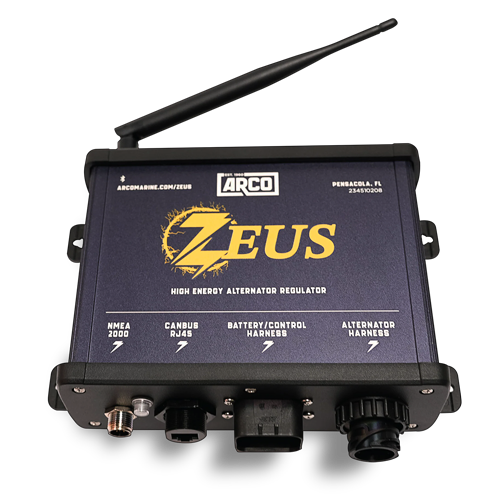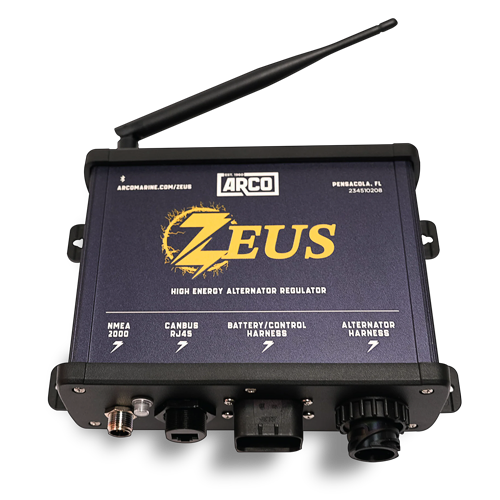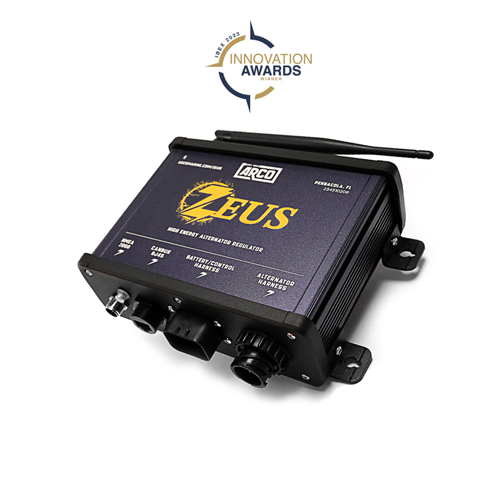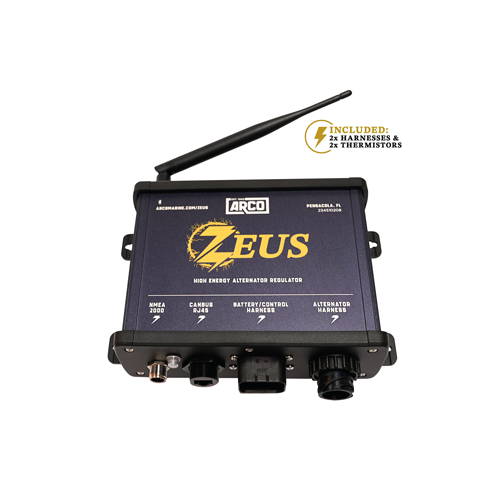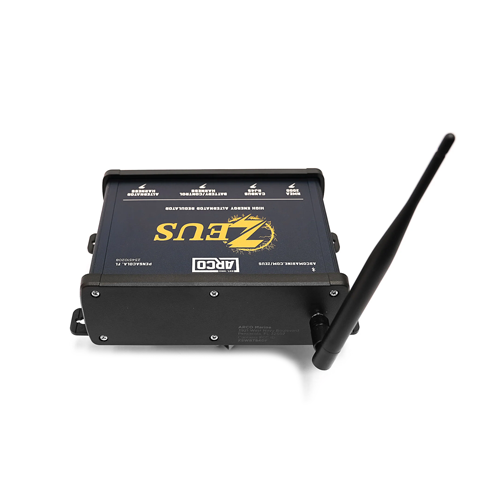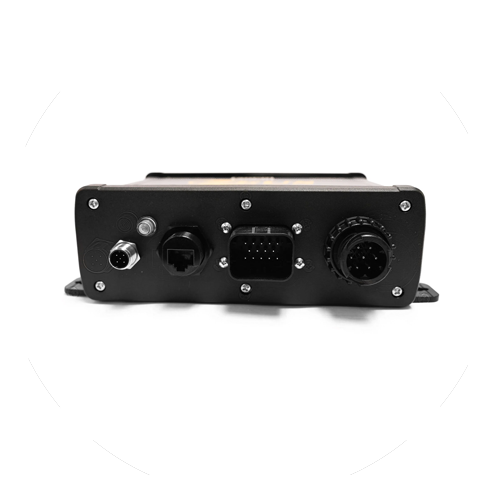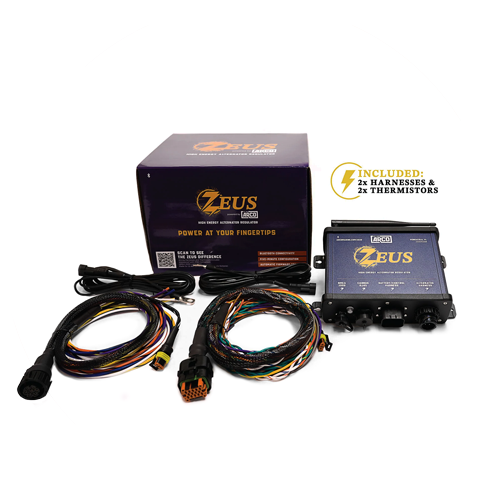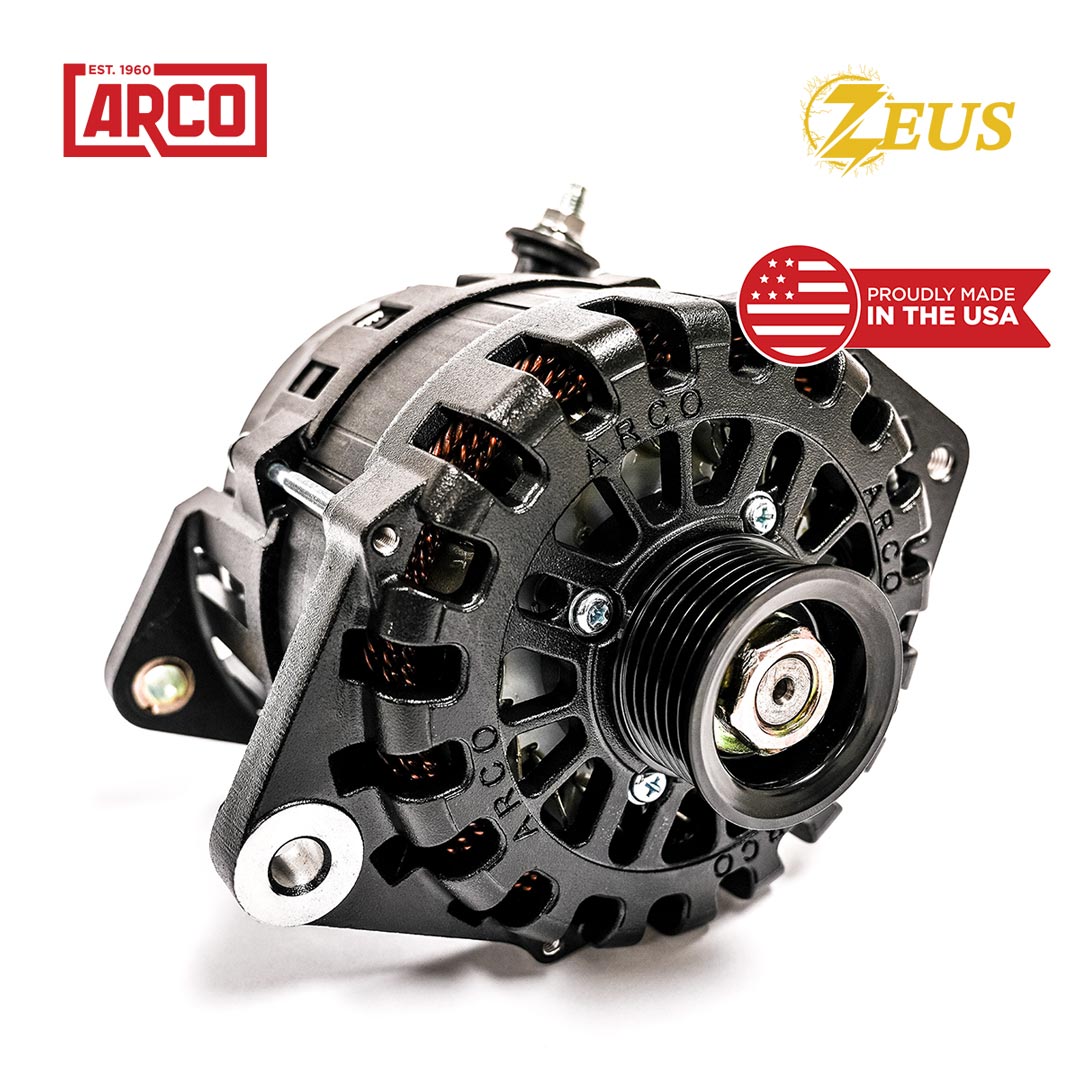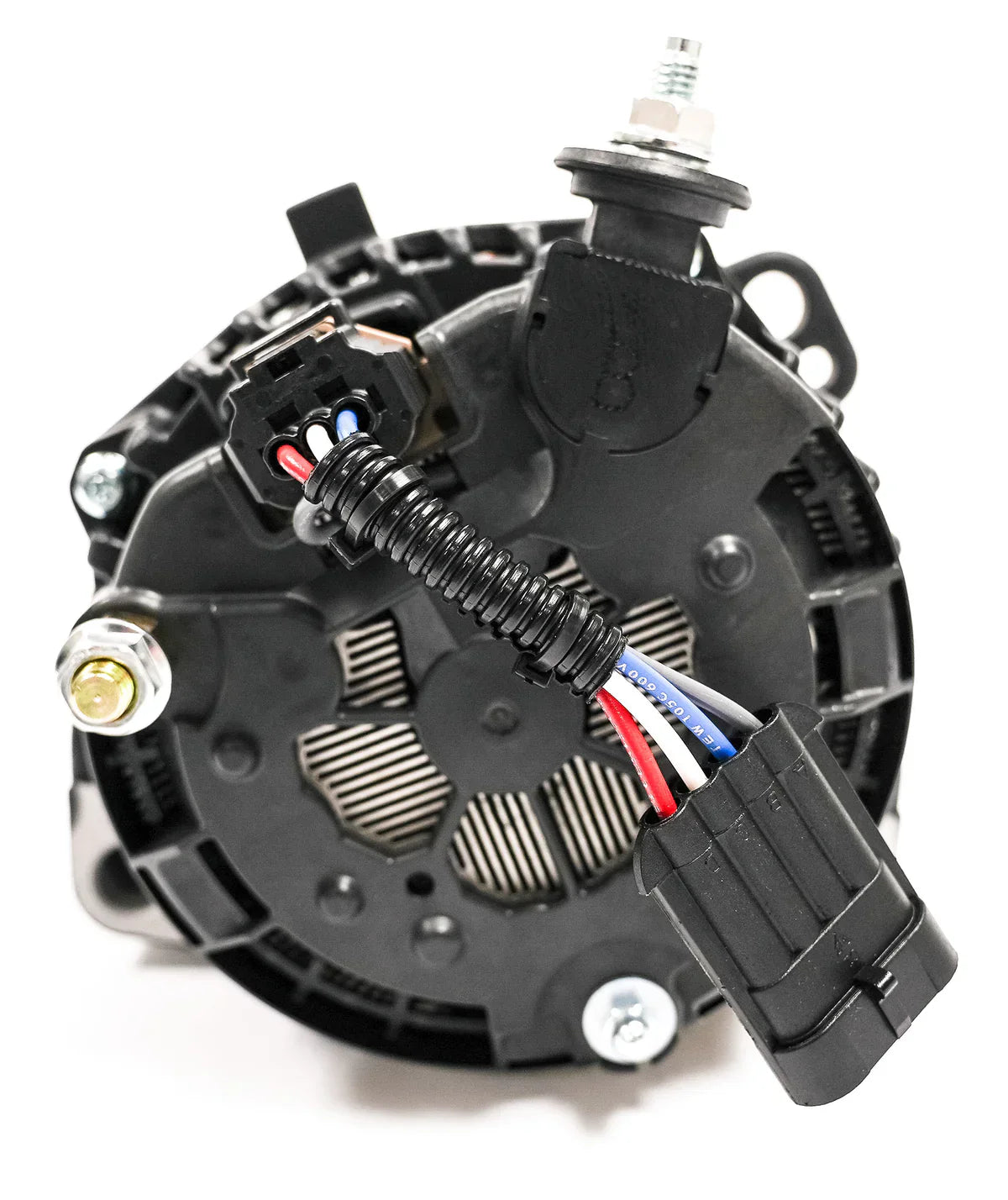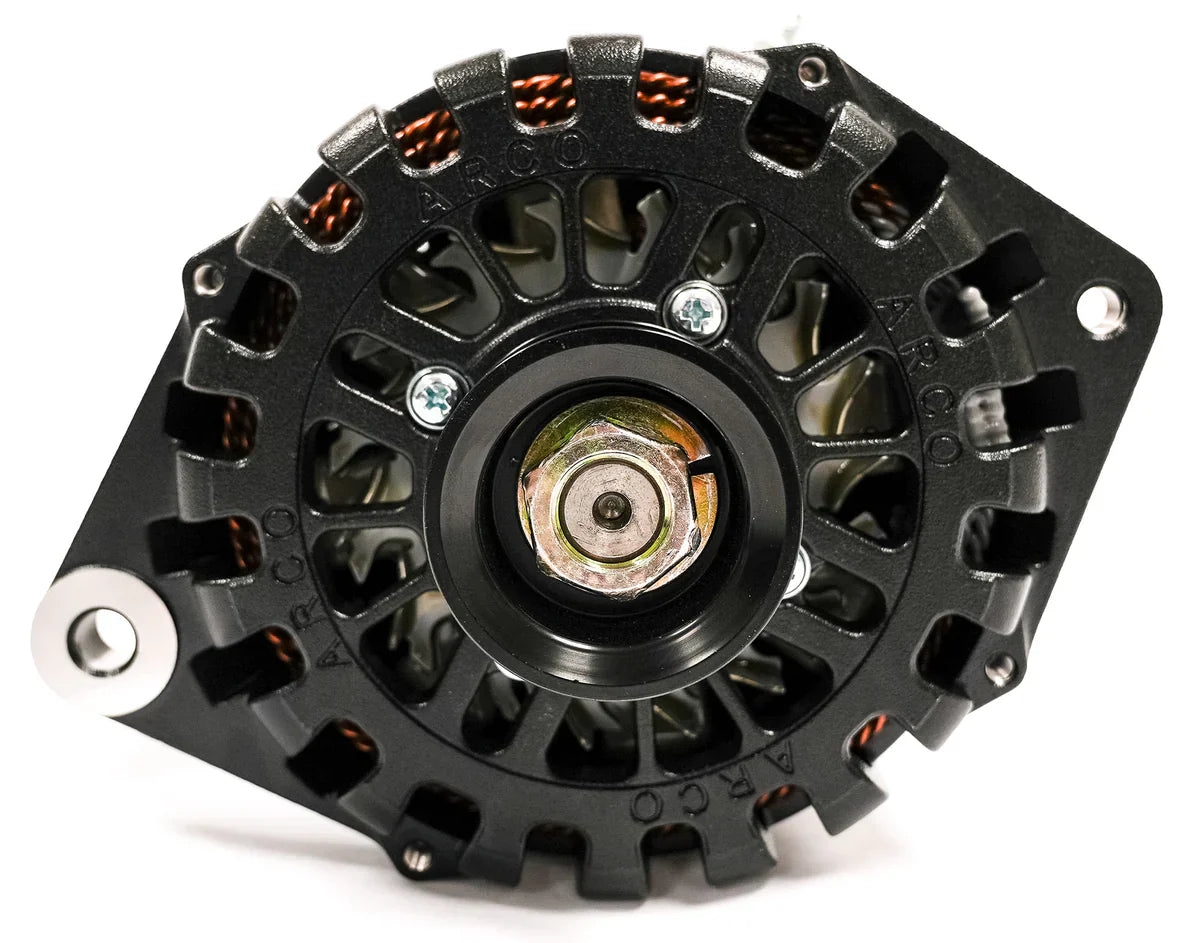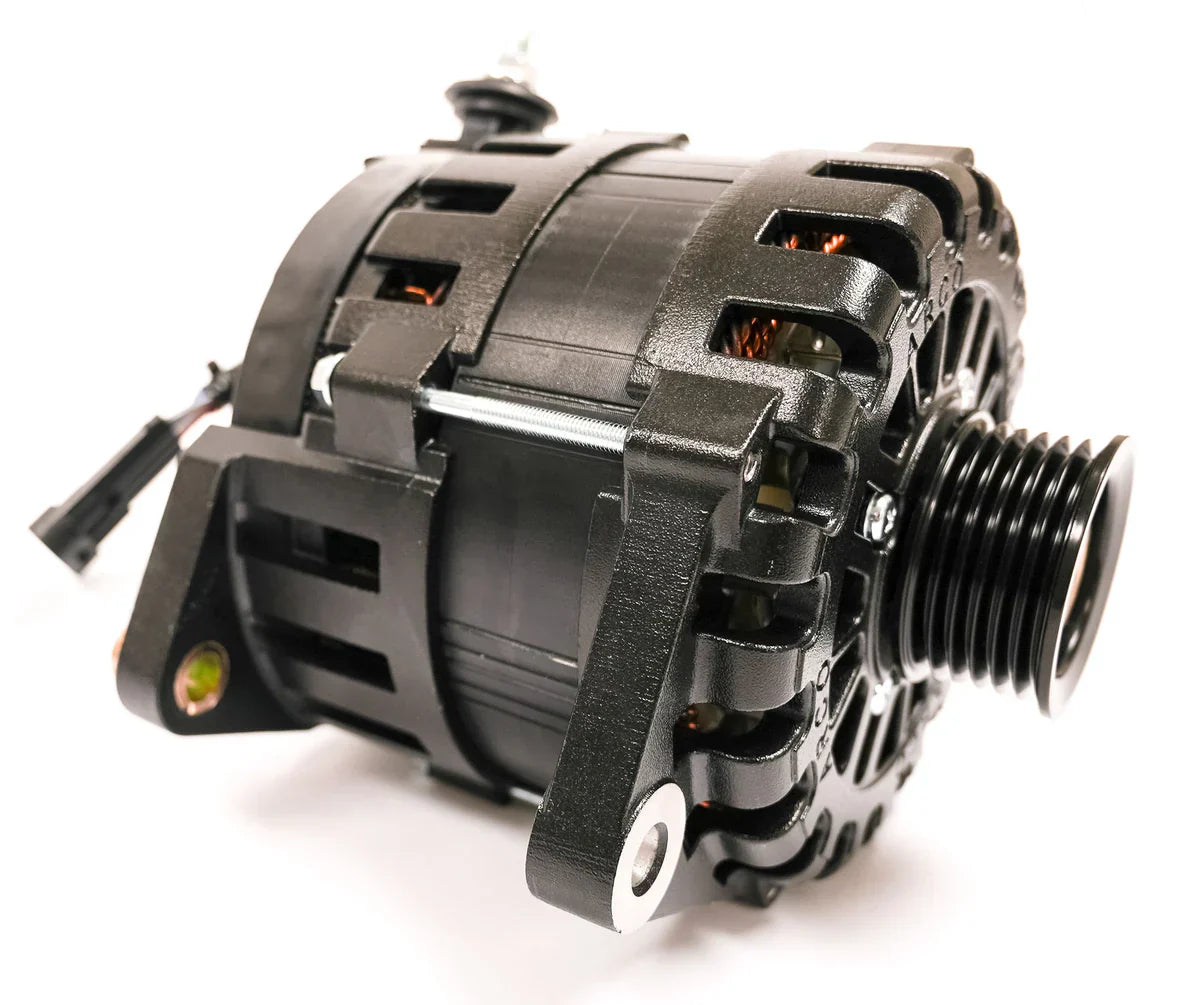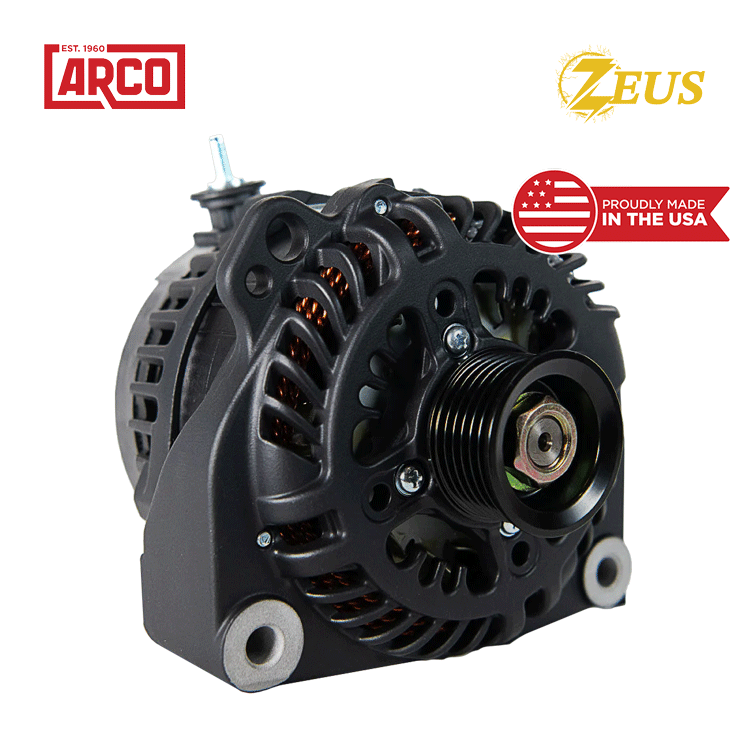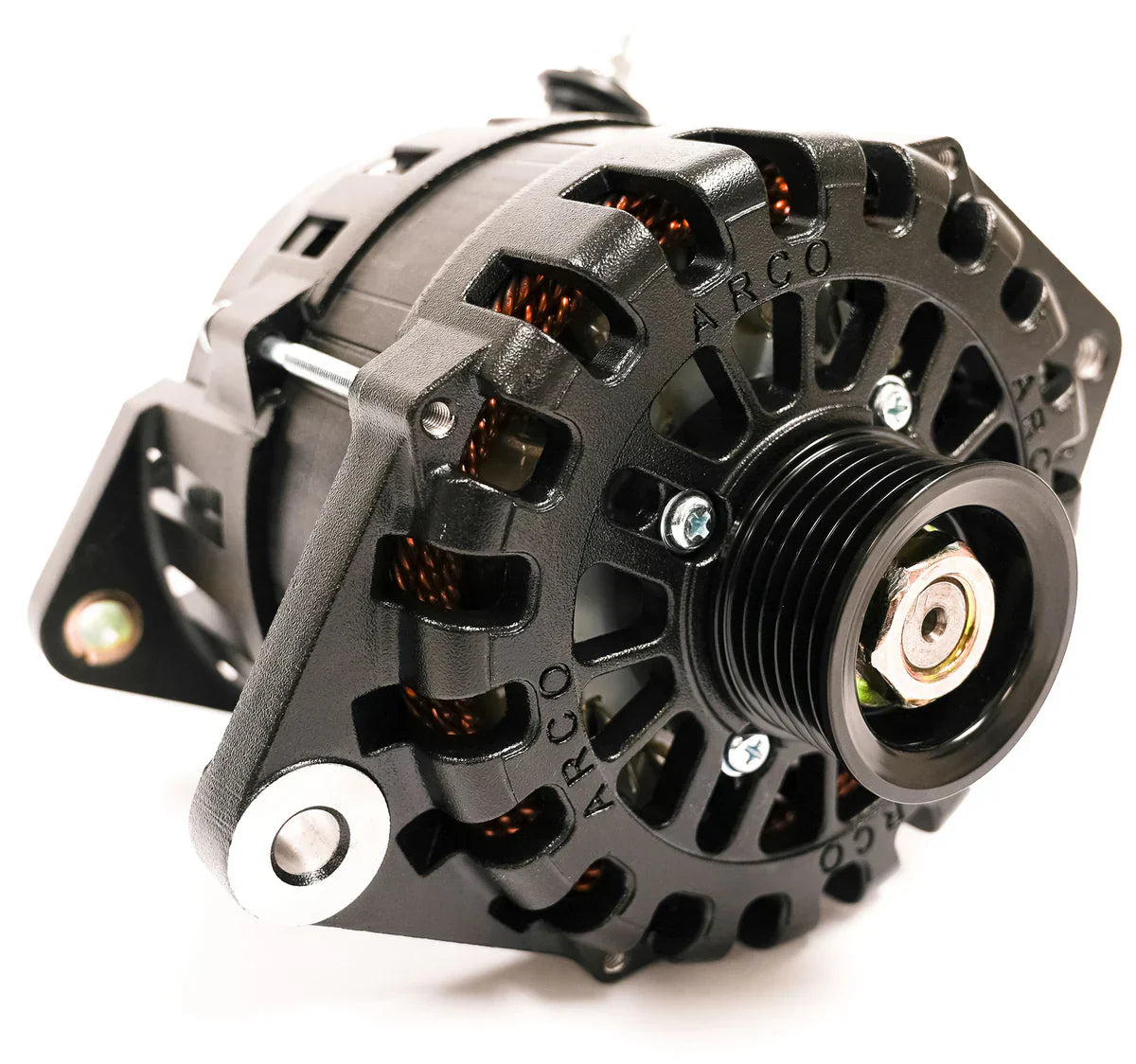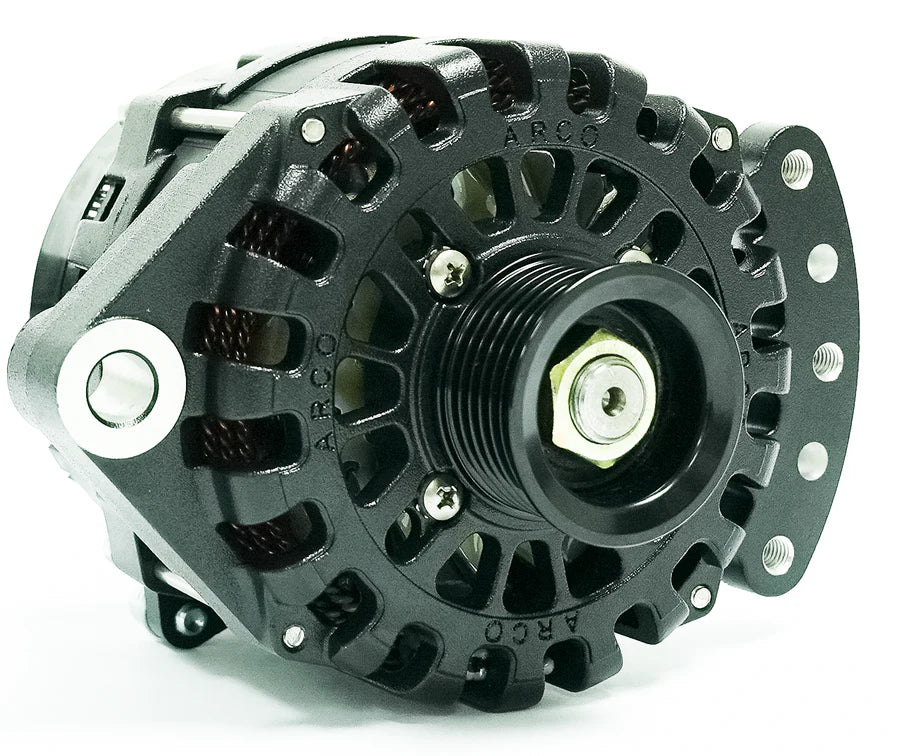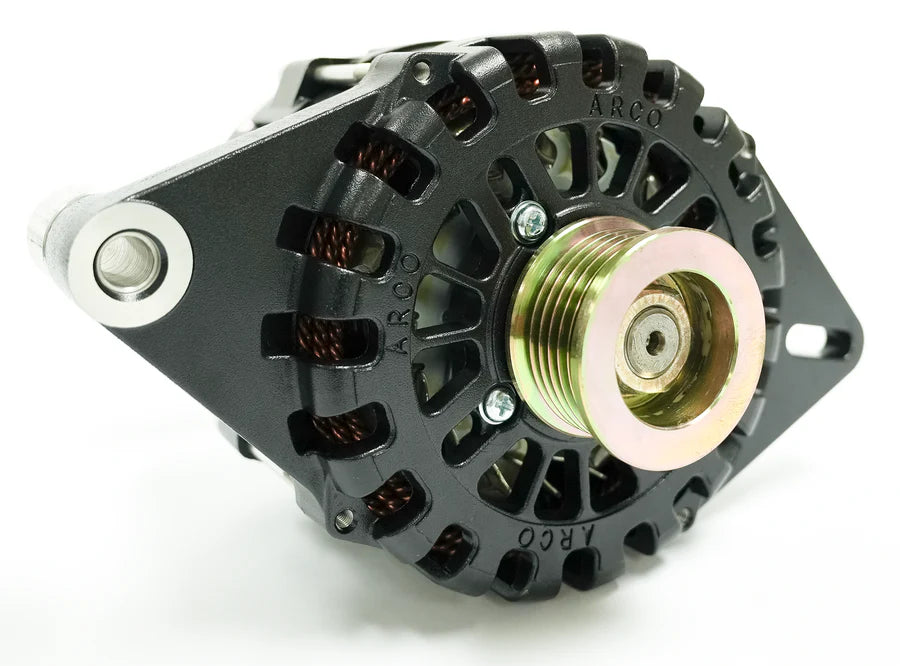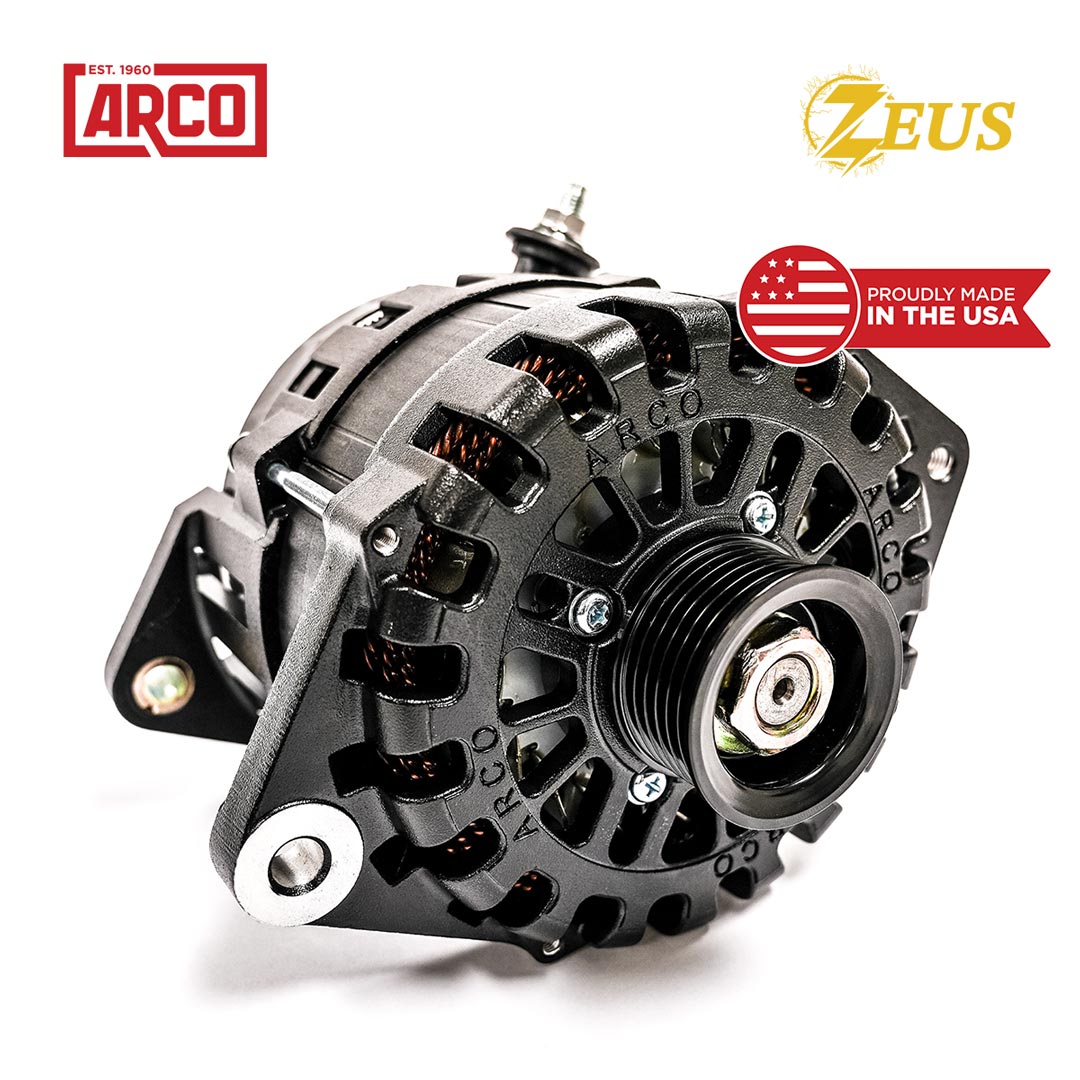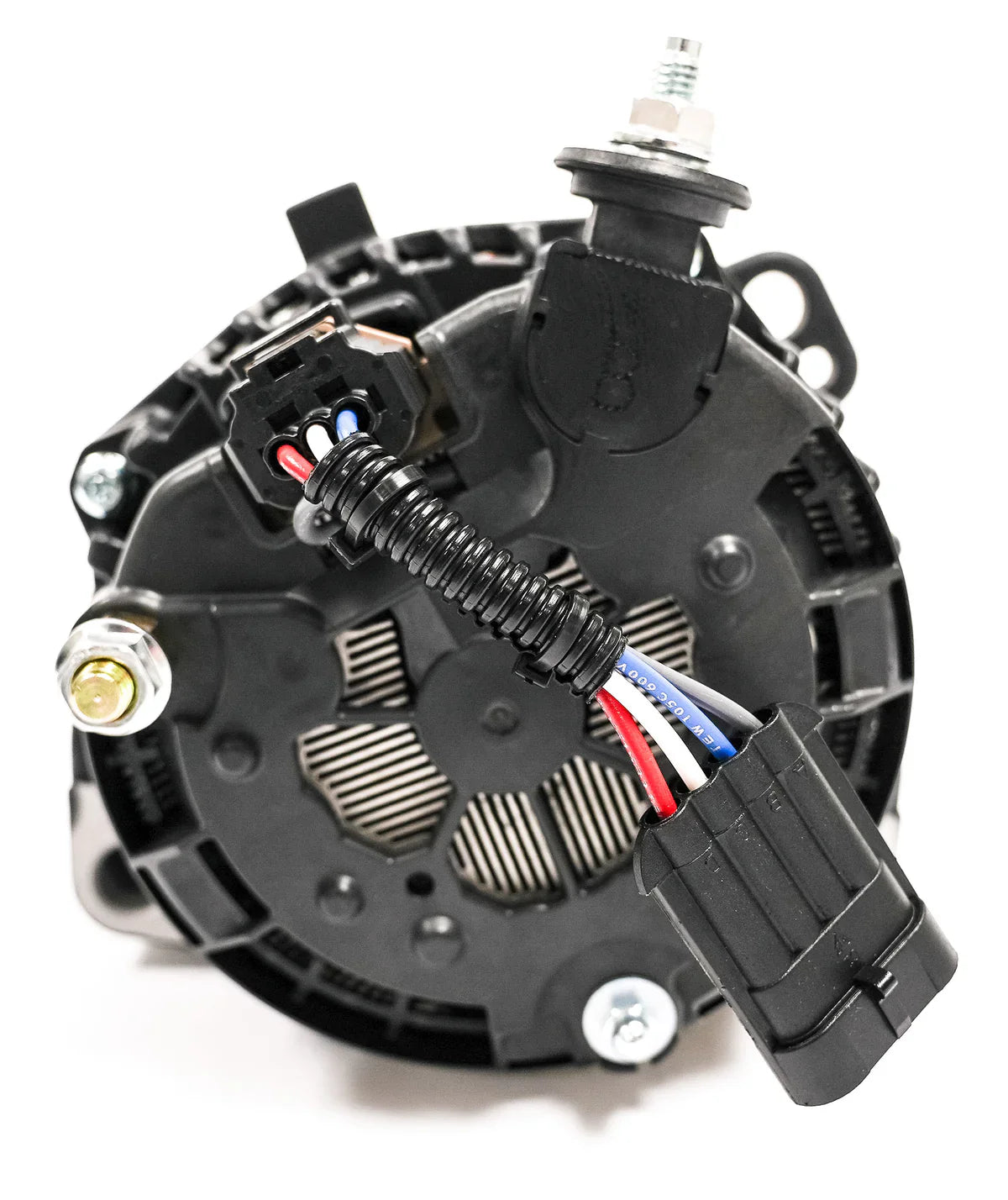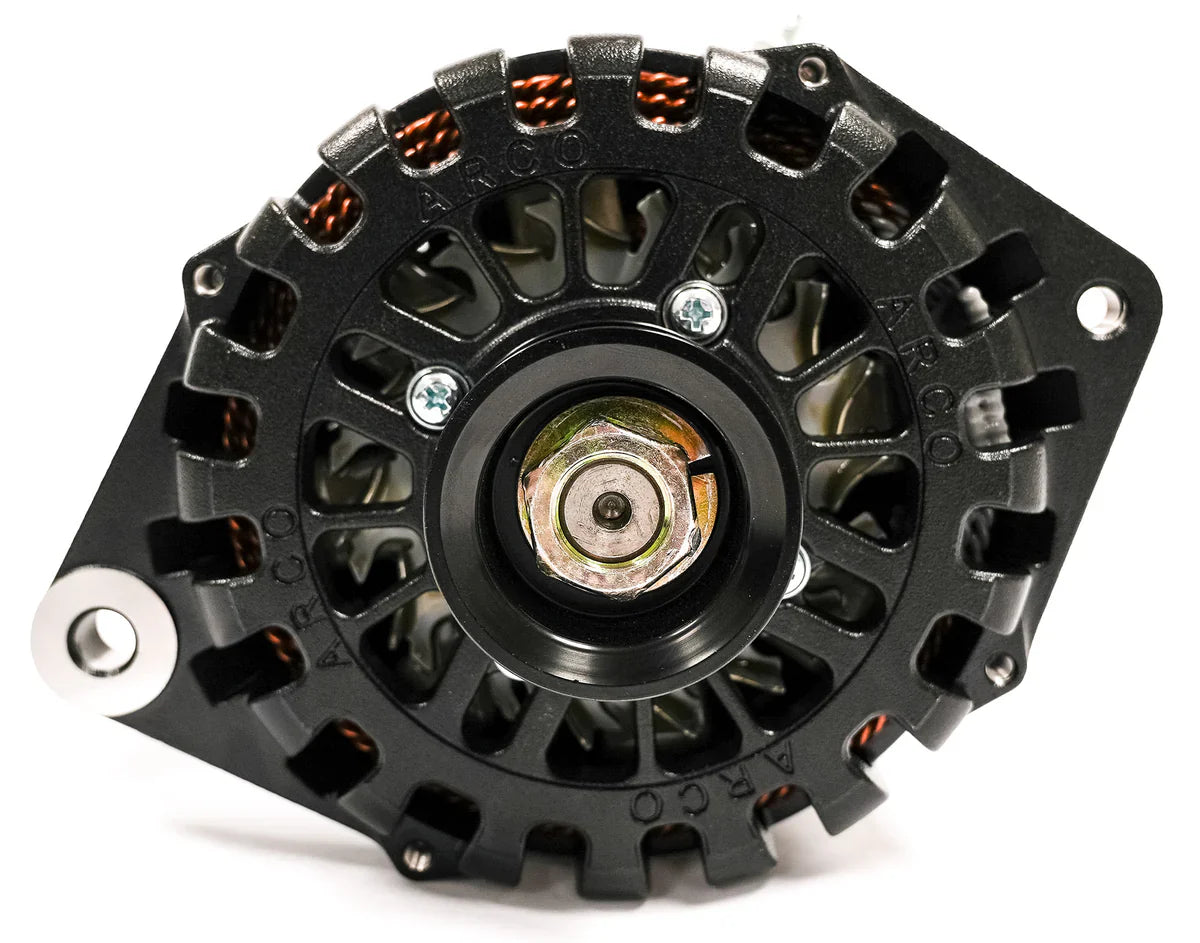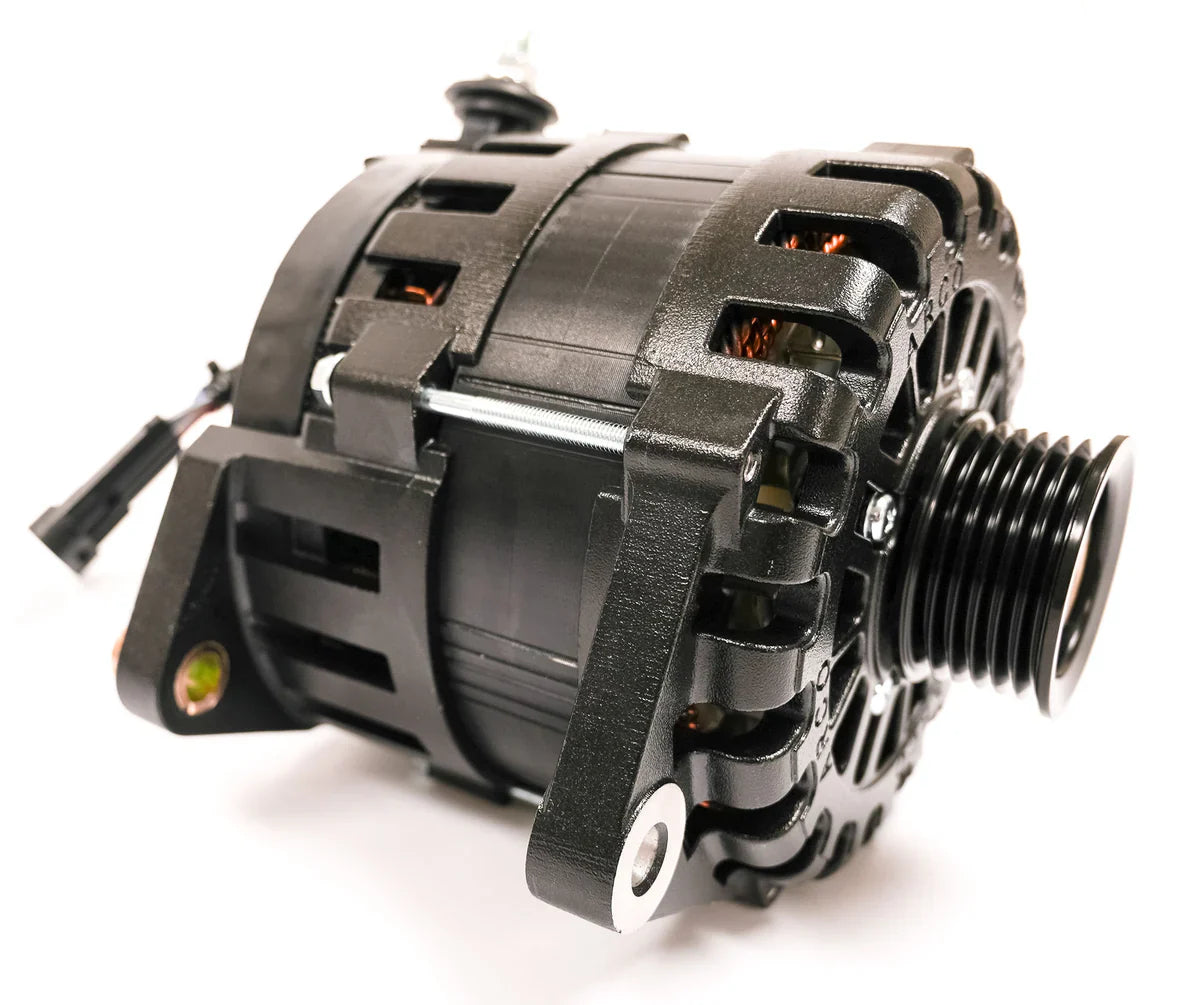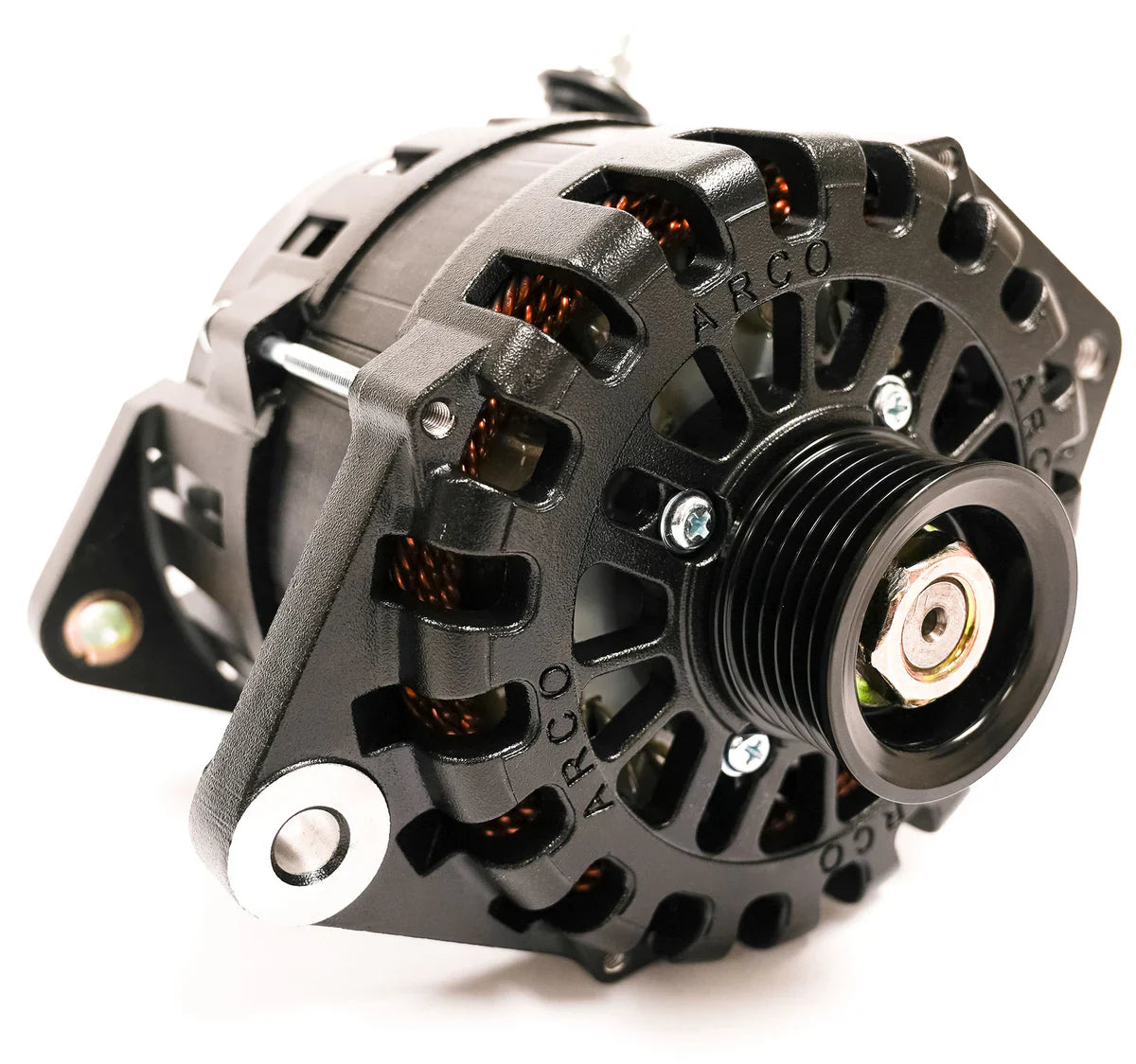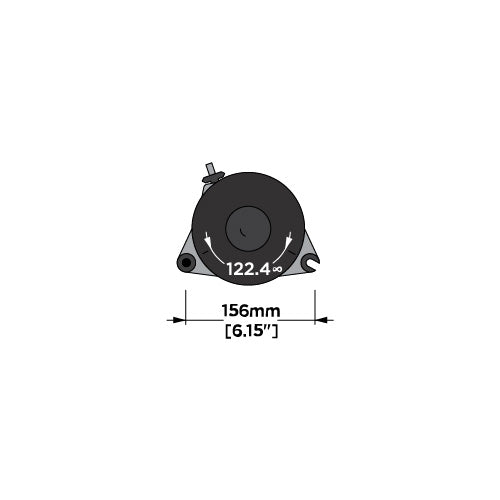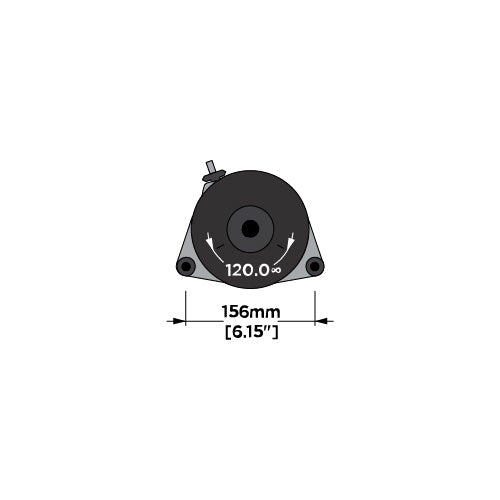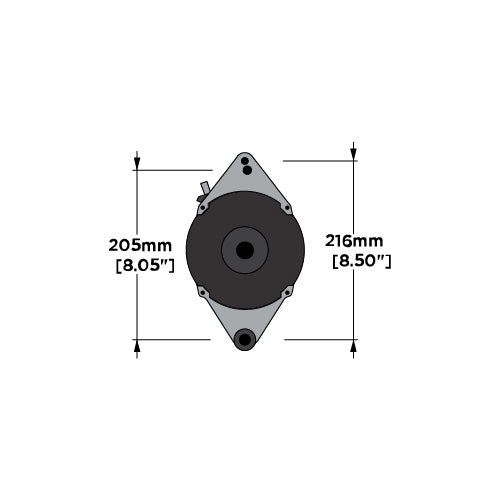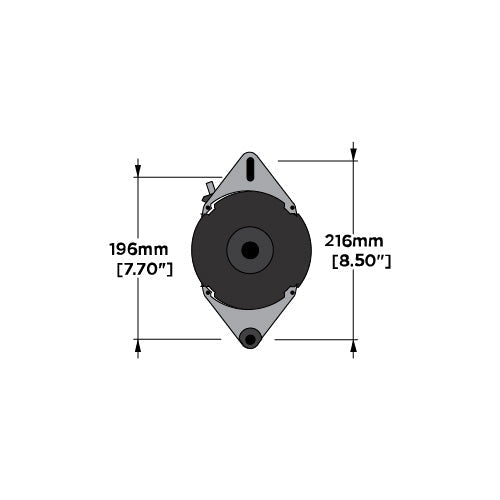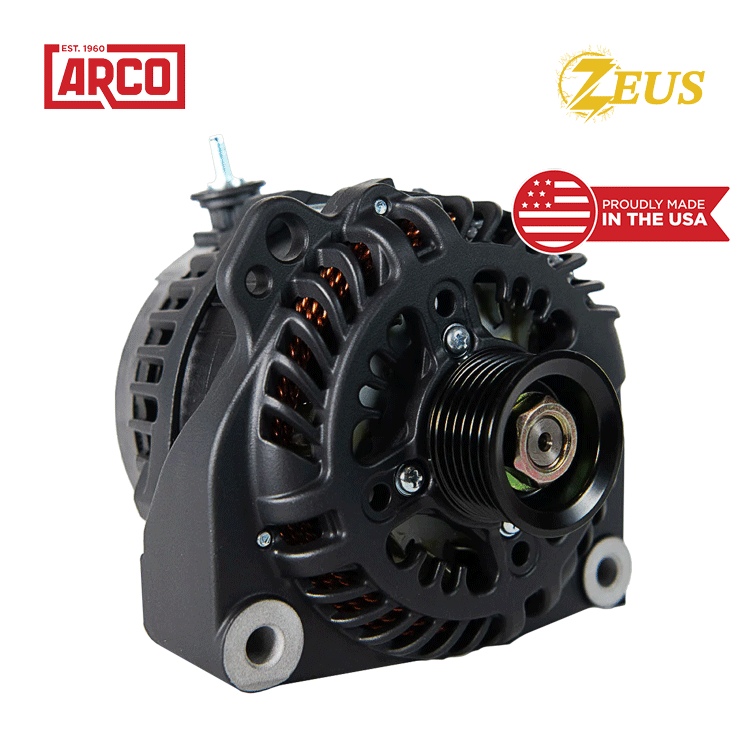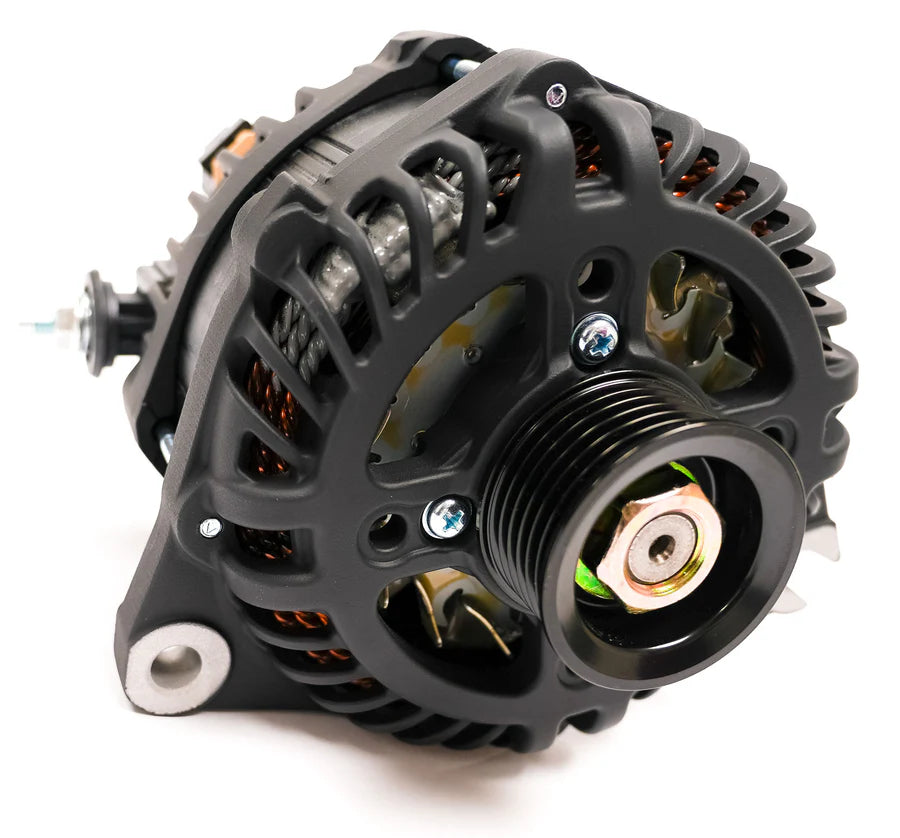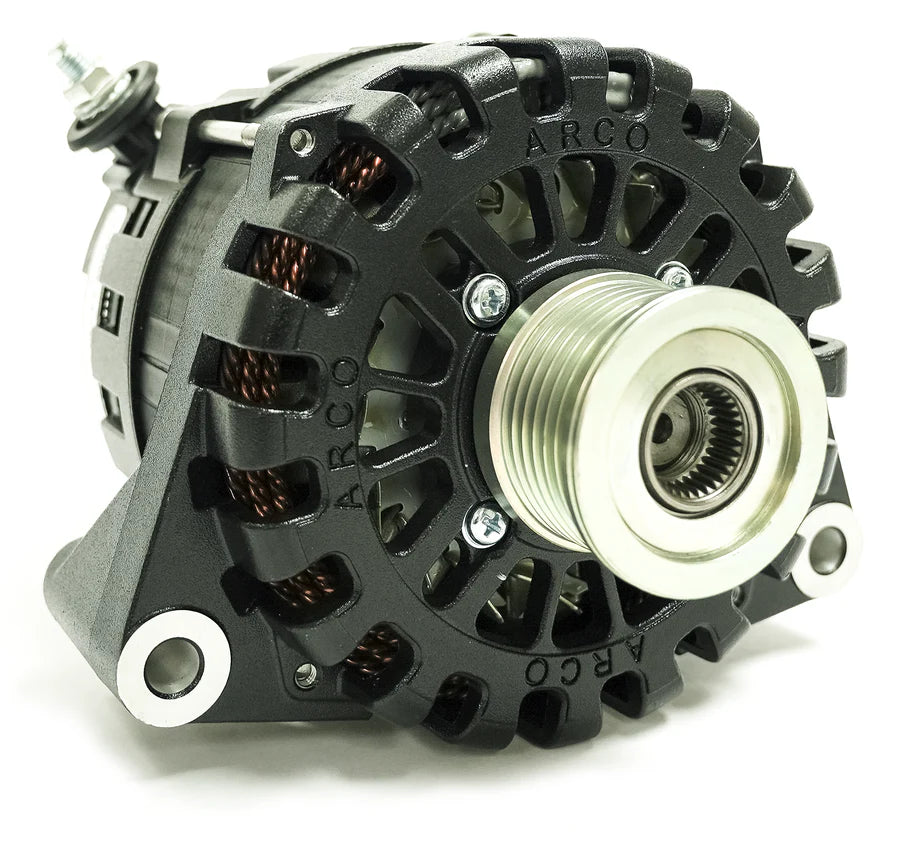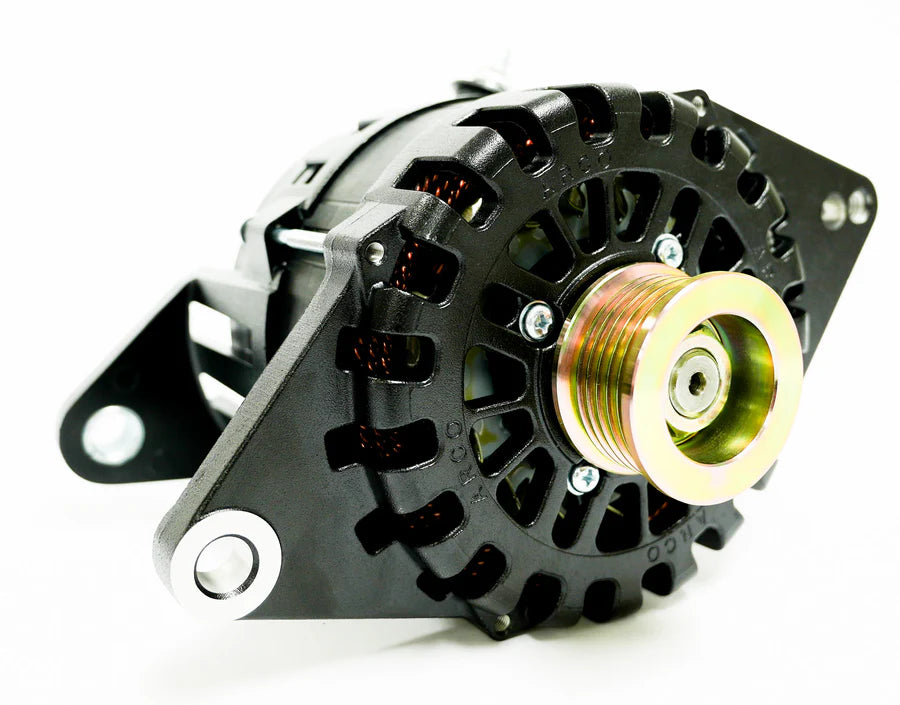
It’s that proven dependability that makes ARCO the trusted source for OEM quality or better alternators, inboard starters, outboard starters, and tilt/trim motors. Nearly 60 years ago, ARCO set the standard for marine engine parts by testing and retesting every unit manufactured beyond normal operating conditions so that we deliver the highest quality, most reliable parts available.




ARCO’s Zeus is the only high-energy external alternator regulator to feature Bluetooth (no additional equipment required) and a native app (on IOS and Android) allowing for easy installation and configuration. With its intuitive interface, you have access to information on your system that you never had before. This information allows you to regulate your system and optimize your battery charge and alternator output resulting in a safer experience while protecting your energy system investment.
Zeus is the only alternator regulator that can read 2 shunts at a time (the battery shunt and alternator shunt). This feature enables Zeus to react to inputs from the battery current/temperature and alternator current/temperature.
Through the ARCO Zeus application, you are in good hands as your data is automatically logged and can be shared with your technician to troubleshoot your system when remote. You can even import your remote technician’s configurations.
Zeus optimizes battery charges for 12-48 volt systems. Whether you are using Lithium (LiFePo4) batteries to lead-acid Deep Cycle batteries, Zeus has you covered with its pre-set battery libraries and configurable menus to optimize your charging profiles. Zeus manages a complex set of inputs by giving you easy to understand options.
Zeus also takes into consideration the power of your engine and allows you to configure the alternator’s power take off from the engine by managing the field, or duty. An advanced feature of Zeus is that it can turn your engine into a dedicated generator with a press of the button, whereby it focuses the alternator’s performance to the creation of energy in replenishing your battery bank quickly.
Consistent with Zeus’ ease of use, Zeus is the only alternator regulator on the market that comes with alternator/battery harnesses and 2 thermistor harnesses, without an additional charge, saving users money and time from sourcing harnesses.

Smart Monitoring Temperature & Current
ARCO Zeus is the only alternator regulator on the market that measures and reacts to inputs from the battery current and temperature as well as the alternator current and temperature. With Bluetooth connectivity and the ARCO Zeus App (IOS & Android), your data is automatically logged and can be shared with your technician remotely to troubleshoot a system problems. You can even import your remote technician’s configurations.

Lithium & Lead-acid Compatible
Zeus accommodates a wide range of systems, optimizing battery charging for 12-48 volt setups. Whether you use Lithium (LiFePo4) batteries or lead-acid Deep Cycle batteries, Zeus has you covered. It comes equipped with pre-set battery libraries and configurable menus, making it straightforward to tailor your charging profiles. Zeus simplifies the complex task of managing various inputs by providing user-friendly options.

High Performance
Designed for high performance and with simplicity in mind.
Monitoring Control
Full wireless control for programming, monitoring and operation.
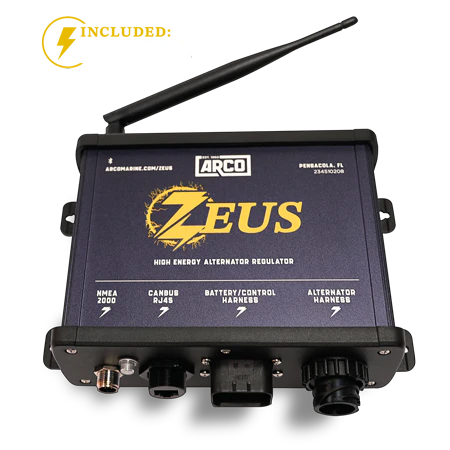
Safe & Secure
Safety performance limitations for batteries, alternator and engine.
New Innovation
Newest innovation in external regulator technology.





